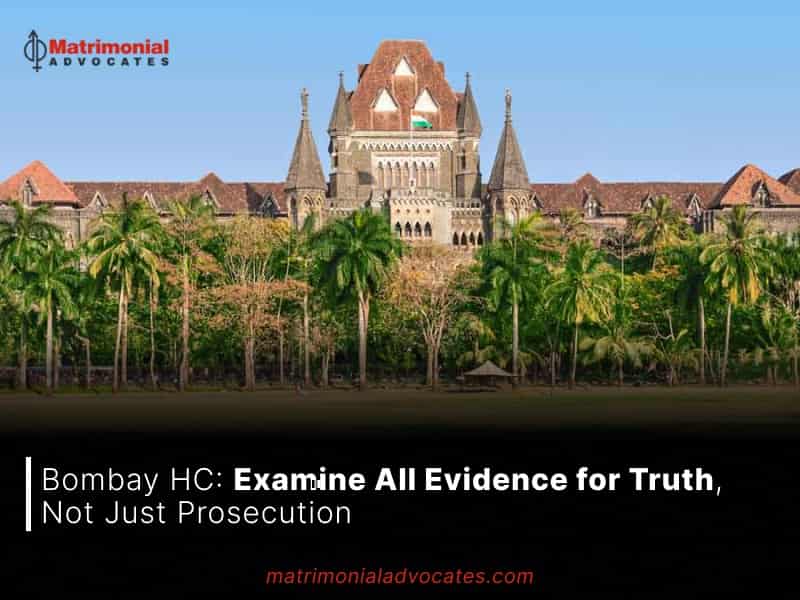
A bench led by Justice Vinay Joshi ordered an investigating officer to consider the evidence produced by the accused booked in case under Sections 498A and 306 of the IPC after his wife died by suicide.
In a recent case, Nikhil Ashokrao Waghmare vs State of Maharashtra, the Bombay High Court reemphasized the fundamental duty of an investigating officer to diligently pursue the truth. The court stressed that this duty necessitates the comprehensive scrutiny and collection of all pertinent evidentiary material in a given case, without exclusive concentration on evidence favorable to the prosecution. Moreover, the court invoked Section 2(h) of the Code of Criminal Procedure (CrPC) to elucidate that the CrPC does not proscribe a mandatory requirement for investigating officers to exclusively predicate their actions on evidence supportive of the prosecution’s position. Thus, the court’s ruling underscores the overarching pursuit of objective truth in the investigative process, transcending any partiality towards the prosecution’s narrative.
“The statute no where says that collection of evidence shall be in support of the case of the prosecution. No doubt, the investigating officer shall be given complete and full freedom to carry the investigation in accordance with law. The material which is sought to be produced by the accused may or may not help the investigating agency, but, it is totally unacceptable that he shall not look into the same,” the bench observed.
The bench confirmed that they had no knowledge of any legal provision that restricts the investigating officer from scrutinizing material they consider relevant and crucial for the purpose of revealing the truth.
“Since the fair investigation and discovery of truth is the ultimate object, the investigating officer has to unearth the truth and bring the real facts on record. It is a requirement of fair trial that there is fair investigation, and there can be no fair investigation if the investigating officer does not take into consideration all relevant material which is desirable for the purpose of investigation,” the bench said in its October 18 order.
The Court made it clear that investigators shouldn’t only focus on collecting evidence that supports the prosecution’s case, as per the rules in the Code of Criminal Procedure (CrPC).
This point came up in a case where someone accused of a crime asked the Court to tell the investigator to look at the WhatsApp messages of their deceased spouse. In this case, the person’s wife died by suicide in February 2022, just three months after they got married. The accused and their family were accused of being cruel under Section 498A and abetting the suicide under Section 306 of the Indian Penal Code (IPC).
In August 2023, the accused handed over WhatsApp messages from the deceased to the police, saying they would give a clear picture of what happened. The accused said these messages would show that there isn’t enough initial evidence against them and their family. Unfortunately, the investigator refused to consider these messages.
The accused argued that these messages were very important and would help the investigator find a fair solution to the case.
In response to these arguments, the Court restated the main goal of the criminal justice system, which is finding the real truth. The Court also reminded everyone that, in the eyes of the law, the accused is considered innocent until proven guilty with the right kind of evidence.
“Fair, impartial and transparent criminal investigation is sine qua non for ensuring fair trial for the accused. The process of fair investigation and fair trial are as much necessary for the victim, as it is also equally necessary for the accused. The investigating officer is, therefore, under an obligation to carry fair investigation with a sole moto to reach to the truth,” the bench underscored.
Taking these findings into consideration, the court concluded the case by directing the investigating officer to take into account the WhatsApp conversations of the deceased.
“However, it is left to the discretion and wisdom of the investigating officer to rely or not to rely on the said documents produced by applicants. Needless to say that we hope and expect that the investigating officer shall carry the investigation in a fair manner,” the Court said.




